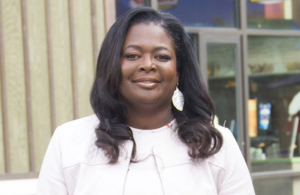The California Task Force to Study and Develop Reparation Proposals for African Americans concluded its first meeting with several witness panels on Friday
The California Task Force to Study and Develop Reparation Proposals for African Americans concluded its first meeting with several witness panels on Friday. The effort is a first of its kind attempt to address and acknowledge racial injustice and inequality.
Over the course of two days, the task force’s nine members, including San Diego City Councilmember Monica Montgomery Steppe, heard testimony from experts and those with lived experience about how slavery, the Great Migration, housing discrimination and racial terror have shaped Black Californians’ lives.
Isabel Wilkerson, author of Caste and The Warmth of Other Suns, provided testimony. For her research, she interviewed more than 1,200 people, including hundreds who ended up in California after the Great Migration.
“The Great Migration was the mass relocation of 6 million African Americans from the Jim Crow South to the cities of the North and West from World War I to the 1970s,” Wilkerson said. “No other group of Americans has had to act like immigrants to be treated like Americans.”
Wilkerson noted that knowing this history is crucial because when Black Southerners finally made it to places like California, they were met with systems of discrimination, such as racial housing restrictions and racial violence aimed at Black homeowners.
The Jim Crow practices of the South followed the travellers to California, where they were met with what Wilkerson called “James Crow” meaning they were once again barred from amassing generational wealth.
“I am testifying because not enough Americans know the truth and full history of our country or the origins of the division we now face and thus of the karmic, social, economic and indebtedness to African Americans that the country has inherited,” Wilkerson said.
California Secretary of State Shirley Weber, who authored the bill that led to the creation of the task force, discussed the overrepresentation of Black men in California prisons and how that’s led to voter disenfranchisement.
“When I ran for the Assembly I had people who didn’t know that if you were an ex-felon you could vote in California,” Weber said.
During the meeting, there was some disagreement over whether Department of Justice staff have the ability to veto meeting and topic agendas suggested by task force members. Task force members said they would discuss the idea and attempt to find more clarity on the matter.
In addition to hearing from experts, task force members also heard from people with lived experiences, such as Dawn Basciano of Sacramento, whose third great-grandfather was enslaved by his own father.
“I almost feel guilty for feeling the pain that I feel. It resonates with me and it hurts,” said Basciano through tears. “There has to be repair, there has to be reparations.”
Basciano believes a reparations package should include the return of stolen land and property as well as direct cash payment.
On Friday, the task force also endorsed and elected Dr. Darrick Hamilton, an economics and urban policy professor at The New School, to serve as the task force’s economic expert.
He will be tasked with researching the economics of reparations, including an estimated dollar amount owed to Black Californians.
Each meeting of the task force begins with an hour of community testimony, which allows members of the public to share their thoughts and opinions.
In this way, the task force’s purpose extends beyond creating a final reparations solution. It also provides a space for Black Californians to have their testimonies and experiences heard and validated in ways that have historically been denied.
The California Task Force to Study and Develop Reparation Proposals for African Americans will meet again in October. The group has until 2023 to draft a reparations proposal.




